Have you ever asked yourself “Why do I have just one watery eye?” Sometimes it’s the left eye, and other times it’s the right eye-watering. or maybe your eye is only watering at night. This can be frustrating, annoying, or maybe worrisome to you. I too have experienced this, which has led me to research and find some answers.
The challenge with having one eye that won’t stop watering is narrowing down the causes, so you can fix it. Let’s go over the possible reasons that your one eye won’t stop watering and some home remedy options.
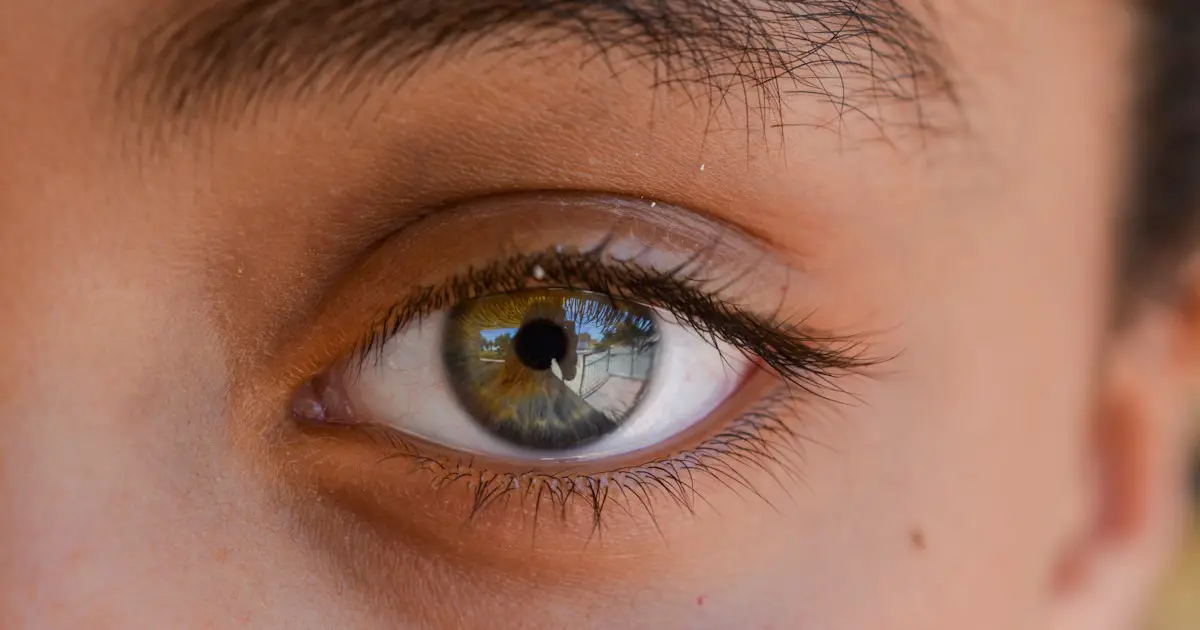
As an Amazon Associate, I earn from qualifying purchases.
Table of Contents
1. Eye Irritation
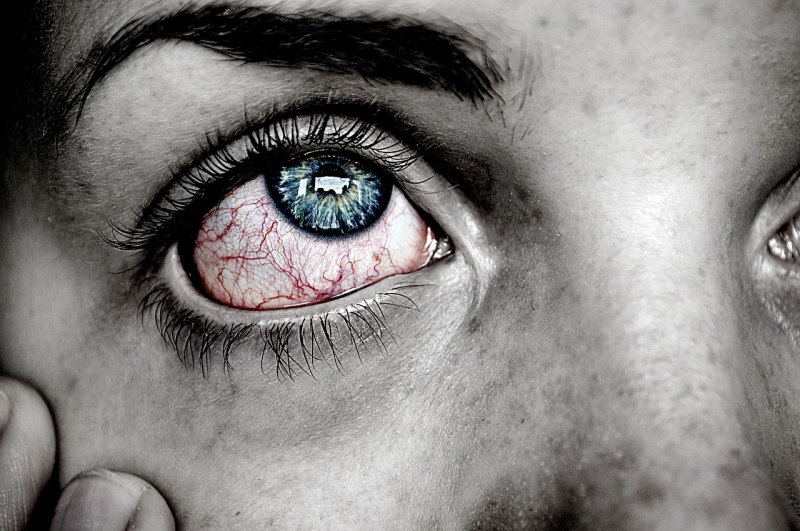
Anything and everything that irritates your eye will make your eyes water, generally speaking. Our eyes tear up to protect and lubricate the eye. If something is making your eye mad (makeup, pollen, etc.), your body is going to attempt to flush out the irritation with more tears, or watery eyes.
I have had many irritations to my eyes over the years, most of the time it’s from pollen or dust. If it is pollen or dust, usually some eye drops will solve the issue.
2. Use of Chemicals and Aerosols

Using chemicals may be the cause of your one watery eye. Chemicals in confined spaces can become airborne and affect your lungs, eyes, nose, and mouth. If you do not have the proper personal protective equipment on (i.e. goggles, and masks), this may be the reason for your one watering eye.
Chemicals That May Cause Watery Eyes
Here is a list of common chemicals that may cause your eyes to water:
- Acetone (nail polish remover)
- Aerosols
- Automotive chemicals
- Carpet cleaners
- Industrial chemicals
- Multipurpose cleaner
- Oven cleaners
- Room freshening sprays
- Spray paint
- Toilet bowl cleaners
If you believe your day-to-day multipurpose cleaner is to blame, or you just want to live a healthier lifestyle with fewer household chemicals, check out the 20 Reasons Force of Nature Cleaner is Legit. Force of Nature is a natural cleaner and disinfectant that you make at home. It is safe, even around the eyes (just not recommended).
3. Industrial Hazards

An industrial hazard may cause one watery eye. Many industrial areas or factories have working conditions that may expose you to fumes, dust, droplets, or airborne particles. These exposures may be responsible for your watery eyes.
4. Environmental Hazards

Environmental exposures (outside) may be producing something that is causing your one watery eye. A good example is wildfires. During wildfires, there are massive amounts of smoke and ash produced. This affects the air quality as well as releases small particles into the air. These small particles can cause irritation which may lead to only one eye-watering, day or night.
I lived in Colorado for 6 years and had my fair share of exposure to wildfire smoke. The wildfire smoke exposure caused my sinuses and eyes (sometimes just one eye) to water.
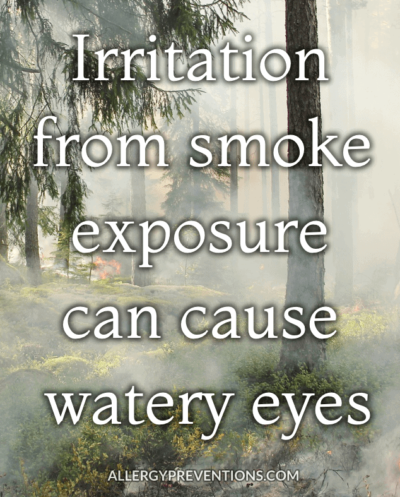
5. Cold & Influenza (flu)

Coming down with a cold can cause one watery eye, due to the additional mucus production. When you come down with a cold or the flu, your body is actively fighting off the “bad guys” on a cellular level. Sometimes your tear ducts get clogged from the mucus and your eyes begin to water.
6. Sinus Infections
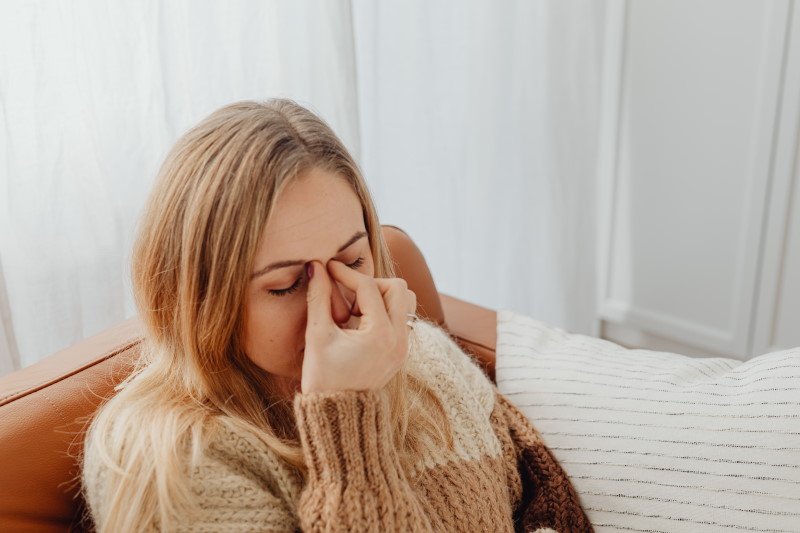
Sinusitis (sinus infection) is defined by Stedman’s Medical Dictionary as “Inflammation of the mucous membrane of a sinus, especially of the paranasal sinuses.” Your sinuses are part of your tear ducts as well. A sinus infection may be the reason for one watery eye.
During my last sinus infection, I had just one watery eye (my right eye) that was watering non-stop. After a few days, the symptoms eased up and my eye stopped watering. After the illness passes, you should see improvements in your symptoms as well.
7. Seasonal Allergies
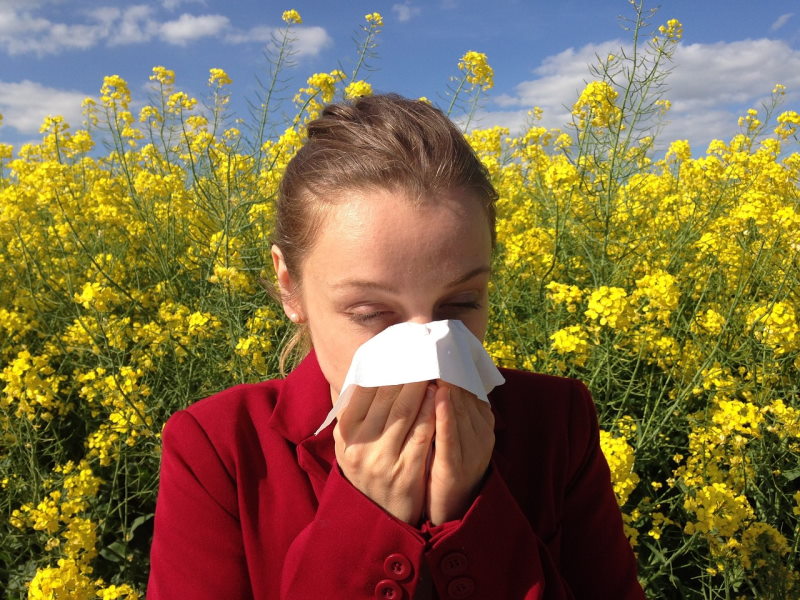
Allergies are a very common reason for one watery eye, day or night, and have been the reason behind my watery eyes for the last quarter-century. When you have allergies to pollen, dander, etc., the allergen can float directly into an eye and cause an allergic response at the source (your eye). You should check out the best OTC allergy eye drops and have a bottle on hand.
Additionally, if you breathe in allergens (lungs and sinuses) your body will try and get rid of the allergen, resulting in mucus production, coughing, and potentially sinus irritation.
8. Food Allergies

When you hear food allergies, you might be thinking of symptoms like hives or an itchy mouth. Food allergies can also cause hay fever-like symptoms including itchy eyes or watery eyes. If you have a known or suspected food allergy, avoid those foods and see if your watery eye gets better.
9. Rubbing Your Eyes
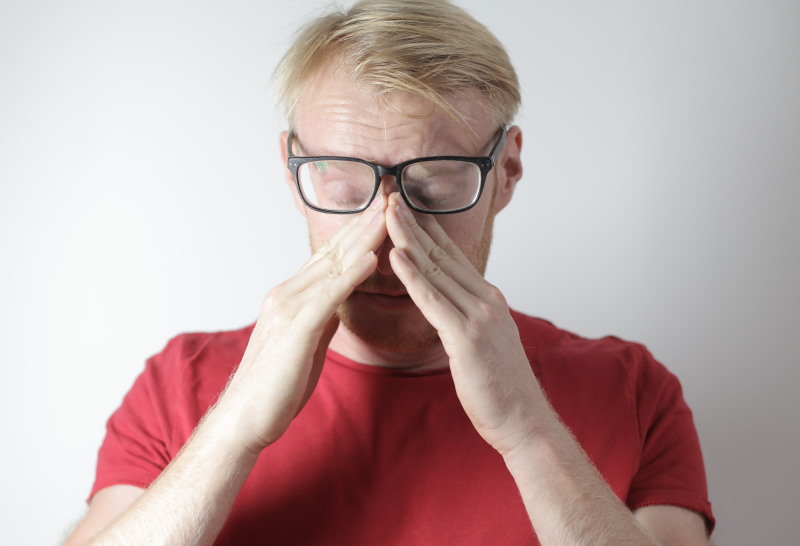
Rubbing your eye is a common cause of watery eyes. Some people don’t even realize they are rubbing their eyes, as it’s an ingrained habit they have formed. Like hundreds of times a day, and not even knowing it.
Don’t rub your eyes!
If you have a substance you are allergic to on your hands from touching an allergen-contaminated item (or even an animal) and you rub your eye, you are now introducing more allergens into your eye.
10. Foreign Objects

A foreign object in your eye causes one watery eye. A foreign object is anything that is not naturally supposed to be in your eye. Here are common foreign objects that cause one watery eye:
- Dirt
- Dust
- Hair
- Eyelash
- Makeup
- Sawdust
- Sunscreen
11. Eye Fatigue Can Cause Watery Eyes

These days, eye fatigue is a common culprit for one watery eye. Whether you spend most of the time looking at screens, reading, or staring into nothingness, this can strain your eyes and cause them to water. The Mayo Clinic recommends that you take a break from your activity every 20 minutes, and look at something 20 feet away, for at least 20 seconds.
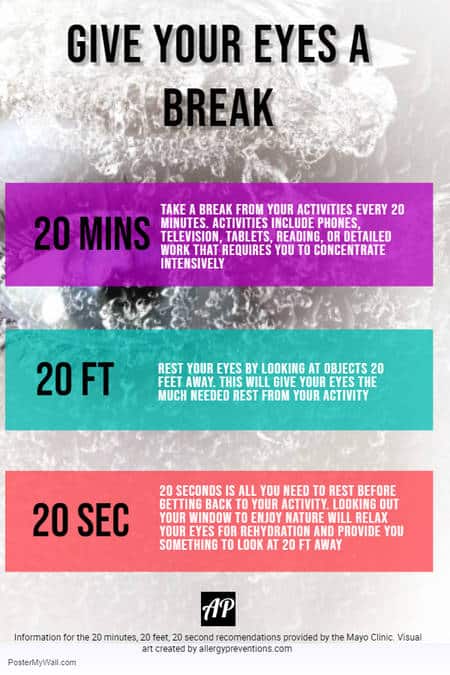
When you are reading, driving, writing, and spending time looking at screens (i.e. TVs, phones, computers, tablets) you are working your eyes into overdrive if you aren’t taking breaks.
Just like with workouts at the gym, you need to rest to allow your muscles to recover, heal, and become stronger, your eyes are no different.
Screen time causes you to blink less often which can dry out your eyes. When you do blink you send a flood of moisture back to the eyeball, causing a flood of tears out of one, or both eyes.
12. Dry Eyes
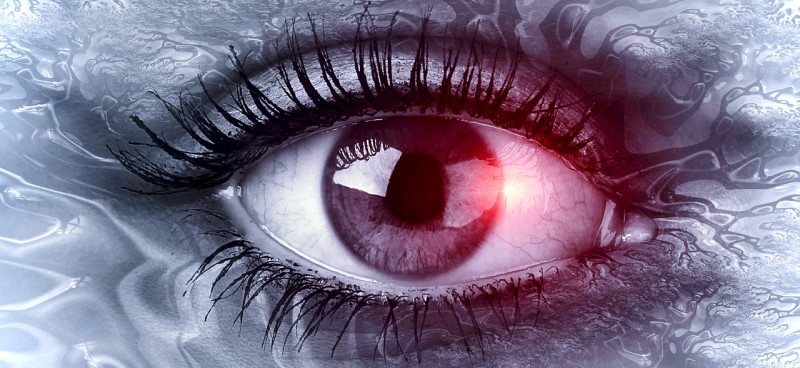
Believe it or not, suffering from dry eye can cause one watery eye. Since your body is aware that the eye is dry, it ramps up tear production to protect the eye from dryness, as it’s trying to provide the moisture needed for the eye to function properly.
Dry eye causes include medications, environmental conditions like wind, or physiological.
Eye drops can help, just make sure you use them as directed.
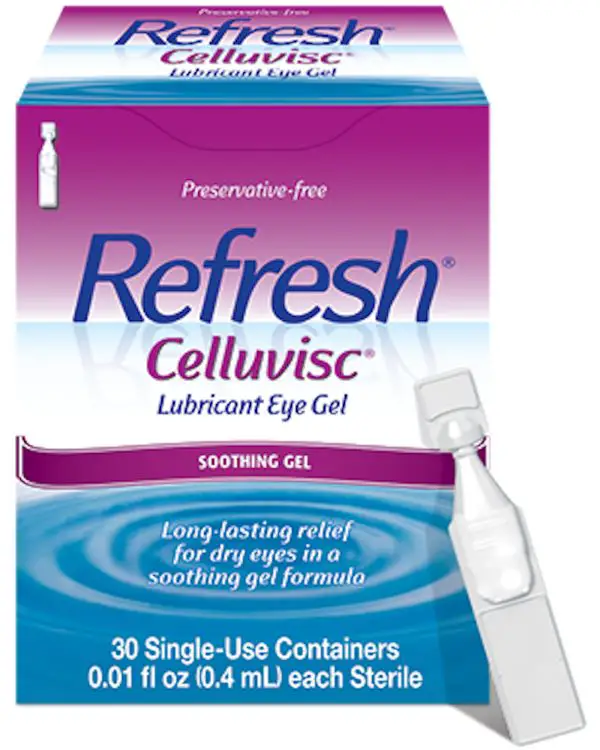
Since I have allergies and suffer from dry eye my doctor has recommended eye drops, which do provide me relief. The eye drops that I received from my doctor are the Refresh “Celluvisc” version, which you can buy on Amazon.
They are kind of goopy so make sure you have a few minutes for them to coat your eyes.
For me, I apply the eye drops before I go to bed to provide all-night moisture, as needed.
13. Contact Lenses
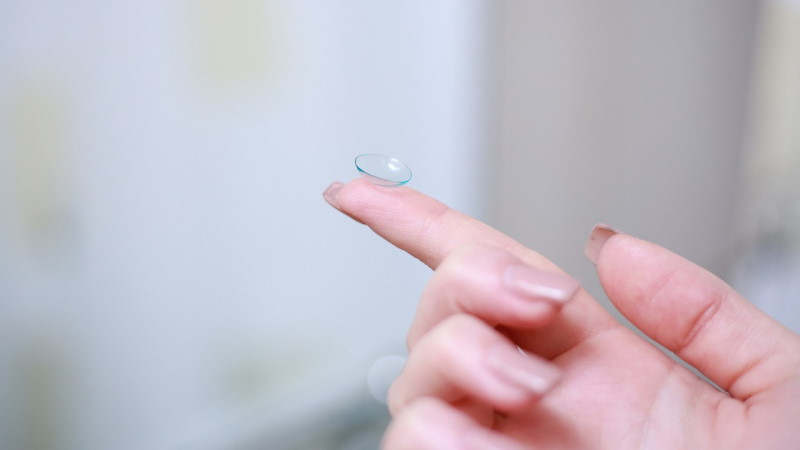
Contacts are great to boost your vision and ditch the frames, but you are literally putting a foreign object onto the eye. At first, your brain isn’t aware that you are putting a foreign object on your eyeball on purpose, so as a natural defense, your brain is telling your tear glands to flush it out!
As time passes, your brain should cut back on the tear production, as your body gets used to the contact lenses. If you are still tearing your body may be telling you that there is still a physical irritation or dryness happening. You may need to talk with the optometrist and switch out your contact brand or shape to get some relief.
14. Clogged Tear Ducts
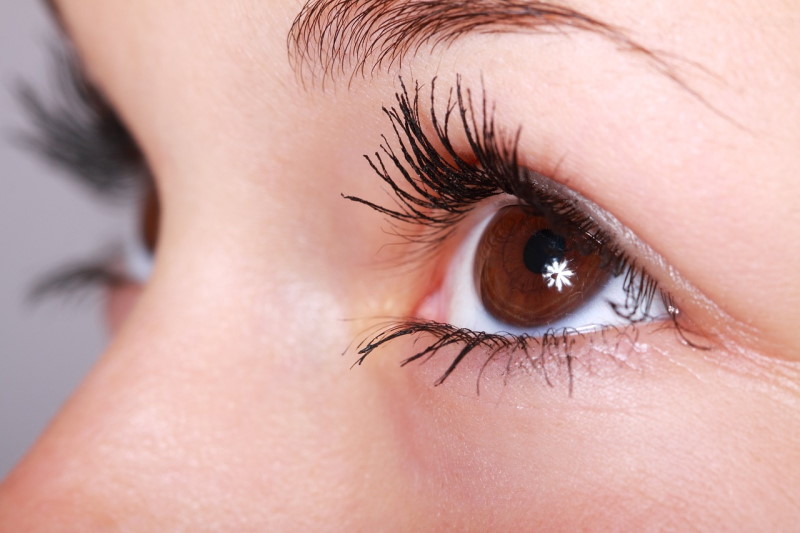
A clogged or blocked tear duct is a good possibility for causing one watery eye. When you have a clogged tear duct, the tears might not have anywhere to go, except over your eyelid (like a tear) instead of down the tear duct.
If the tears are pouring out your eyelid you may have a clogged tear duct.
Essentially tear ducts are drains for your eyes, like gutters on a house and so if one of your drains is clogged then the tears overflow.
15. Scratched Cornea
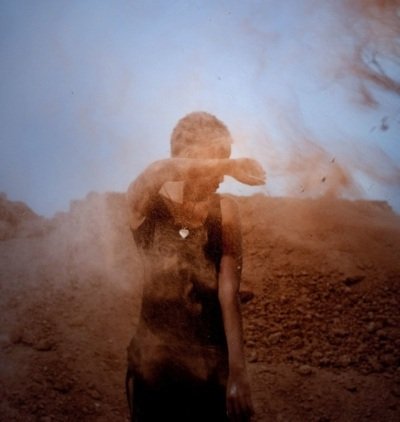
A scratched cornea, or corneal abrasion, is a common cause of one watery eye. The cornea is the clear layer of the eye. The scratch disrupts the eye and may lead to more severe symptoms besides eye-watering. Here is a list of common corneal abrasion causes:
- Debris from yard work
- Sports
- Tree branches
- Your dog’s wagging tail
16. A Stye Can Cause A Watery Eye
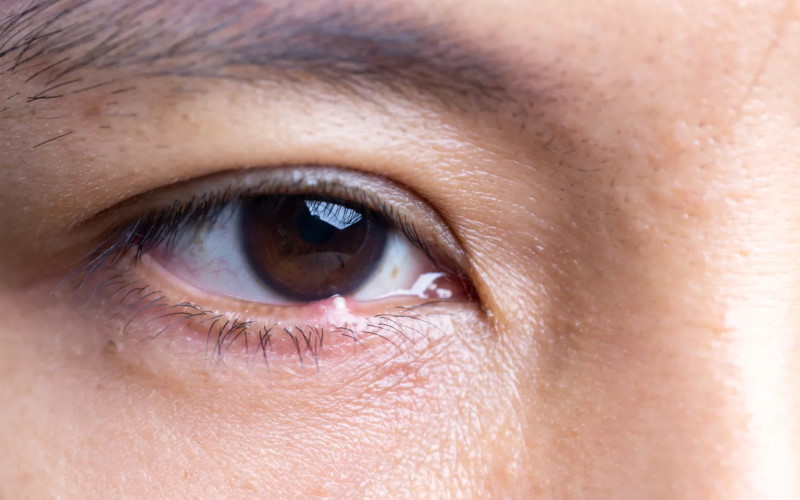
A sty (also spelled stye) is like a pimple that develops on your eyelid or sometimes on the inside of the eyelid which can cause one watery eye.
I have personally experienced styes a few times in my life and have sought out care from an optometrist. Usually, the stye is on either the left or right side, so only one eye is watering.
My instructions were to apply a warm, moist compress over the eyelid to try and break down the fluid inside the pimple so it can be released naturally.
17. Ingrown Eyelashes
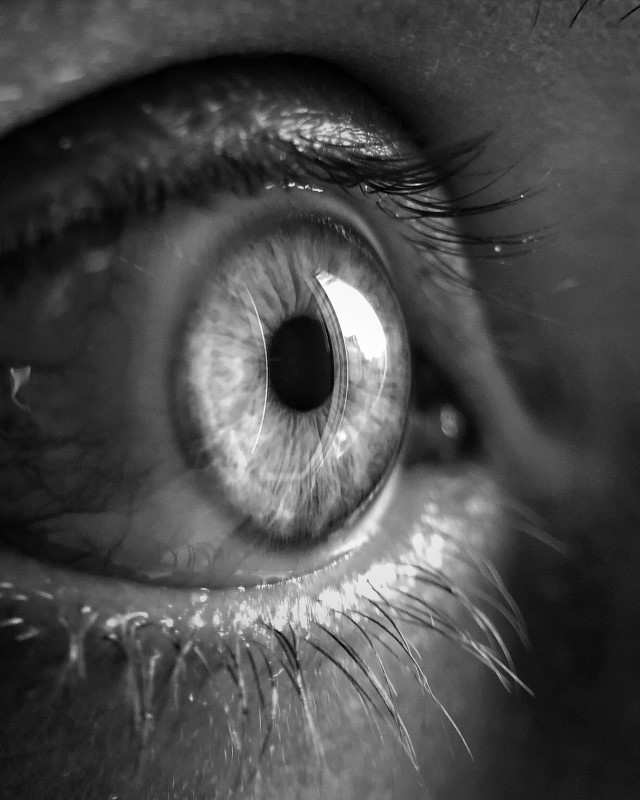
An ingrown eyelash is essentially an ingrown hair that can cause one watery eye. Your eyelid may be causing your eyelashes to grow in toward the eyeball causing redness, discomfort, and one watery eye because of this eyelash irritation. If you notice just one eye-watering, look closely to see if you have any lashes that are poking you in the eye.
18. Eye Infection (Pink Eye)
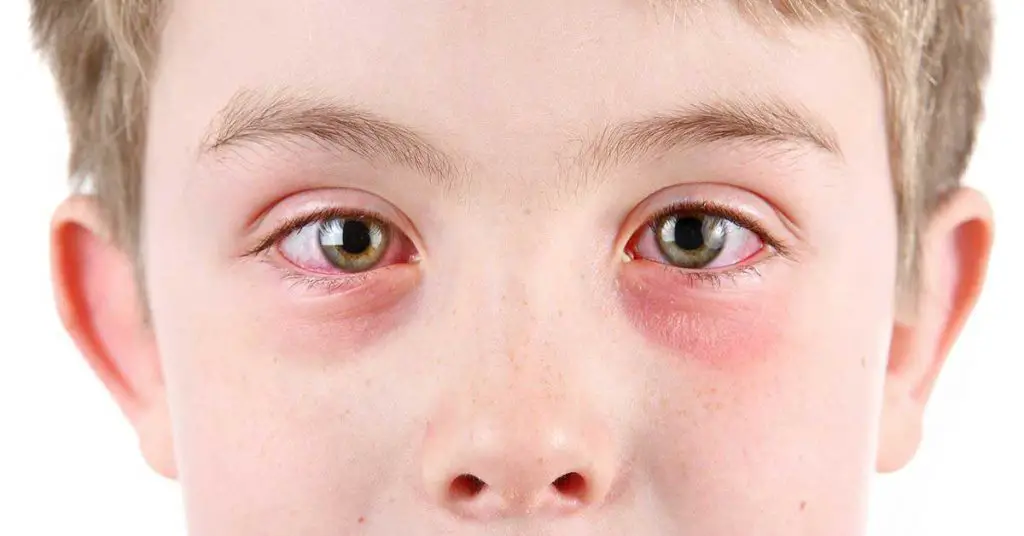
Infections of the eye including conjunctivitis (Pinkeye), and bacterial, fungal, and viral infections can cause one watery eye. If you suspect an infection make sure you seek help from a medical professional, you may need special medications to help with your situation.
19. Medications
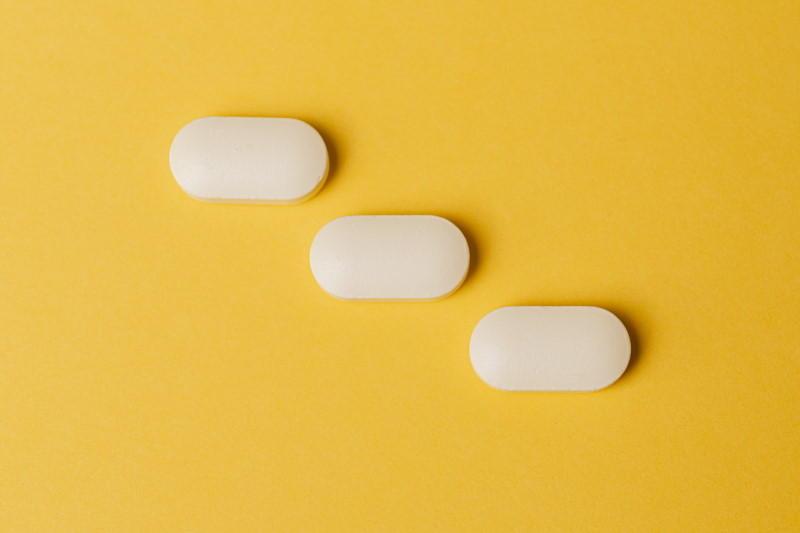
Some medications are known to cause side effects that cause the eyes to water. Two examples are antihistamines and decongestants which are typically used for allergies and colds. Both of these medications tend to “dry you out” which does take care of decongestion and runny noses.
These medications also dry out your tear production, which can lead to dry eyes and ultimately watery eyes all the time.
Other medications also dry out your eyes, but from my research, antihistamines, and decongestants are the top medications that can cause one watery eye.
20. Your Genes Might Cause Chronic Eye Watering

All of us are built differently, making some individuals more prone to having watery eyes, or dry eyes for that matter. Ask your close relatives if they suffer from the same types of conditions to investigate if this is something you have inherited. Allergies are something you can inherit through genetics.
Home Remedies For One Watery Eye
The home remedies for one watery eye (or both eyes) will depend on the cause of your watery eye. Here are generalized home remedy options to find relief from The American Academy of Ophthalmology.
Wash Your Hands
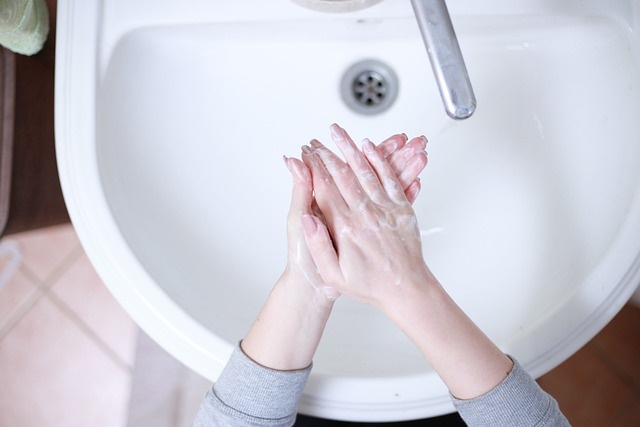
Hand washing is one of the simplest and most effective ways to remove contaminants from your hands. By washing your hands regularly, you can help protect yourself and your loved ones from getting sick. Washing your hands with soap and water removes dirt, bacteria, and other germs, and it’s the best way to prevent the spread of infection.
Wear Goggles

Goggles protect the eyes from flying debris, chemicals, and other foreign objects. They also protect the eyes from the sun’s UV rays. Goggles are important for people who work in hazardous environments, such as construction workers and firefighters.
Use Artificial Tears (Eye Drops)
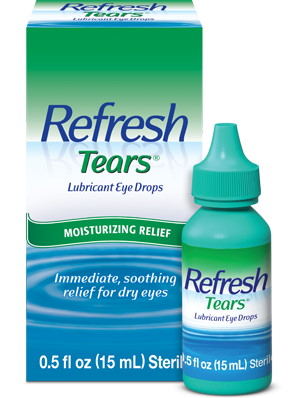
Eye drops are a great way to wash away allergens in the eye. They work by dissolving the allergen and flushing it out of the eye. This can help to relieve the symptoms of allergies, such as itchy eyes, watery eyes, and red eyes. Eye drops are available over-the-counter at most pharmacies, and they come in both prescription and non-prescription strengths. Refresh Tears® on Amazon, works great for me day to day.
Try An Antihistamine
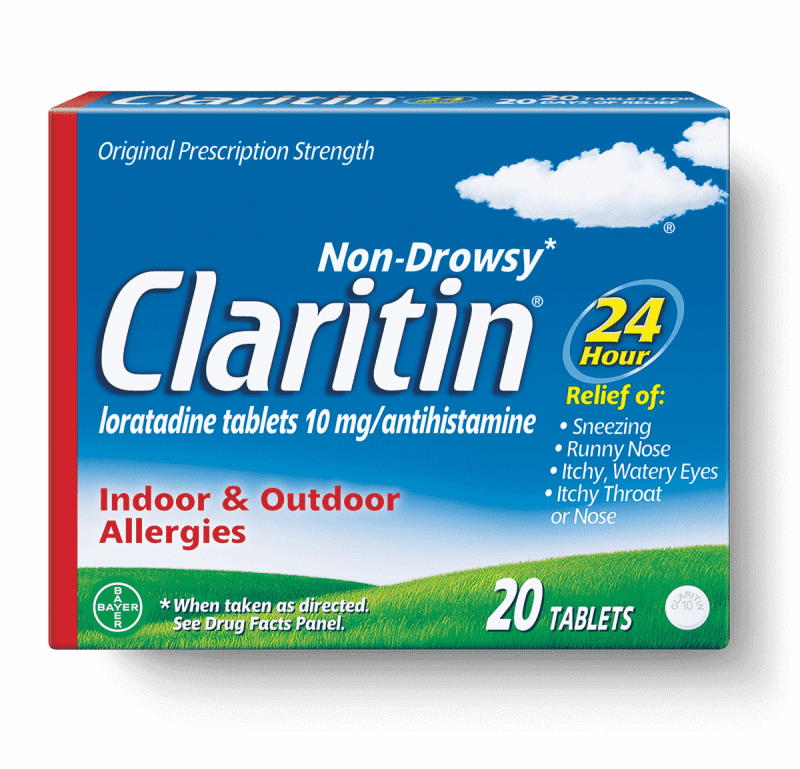
Antihistamines are one way to treat this condition and work by blocking histamine, which is a chemical that your body releases in response to an allergen. This medication should help to reduce inflammation and the production of tears.
Warm Compress
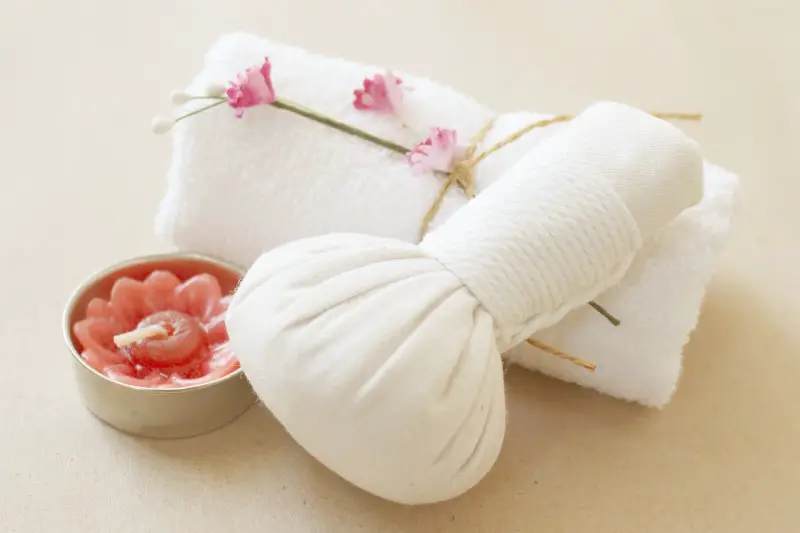
A warm compress can help to reduce the inflammation and pain associated with styes. A compress can be used a few times, and it is all-natural. A warm compress can be made by soaking a cloth in hot water and holding it against the affected area for a few minutes. Repeat as necessary.
Rest Your Eyes
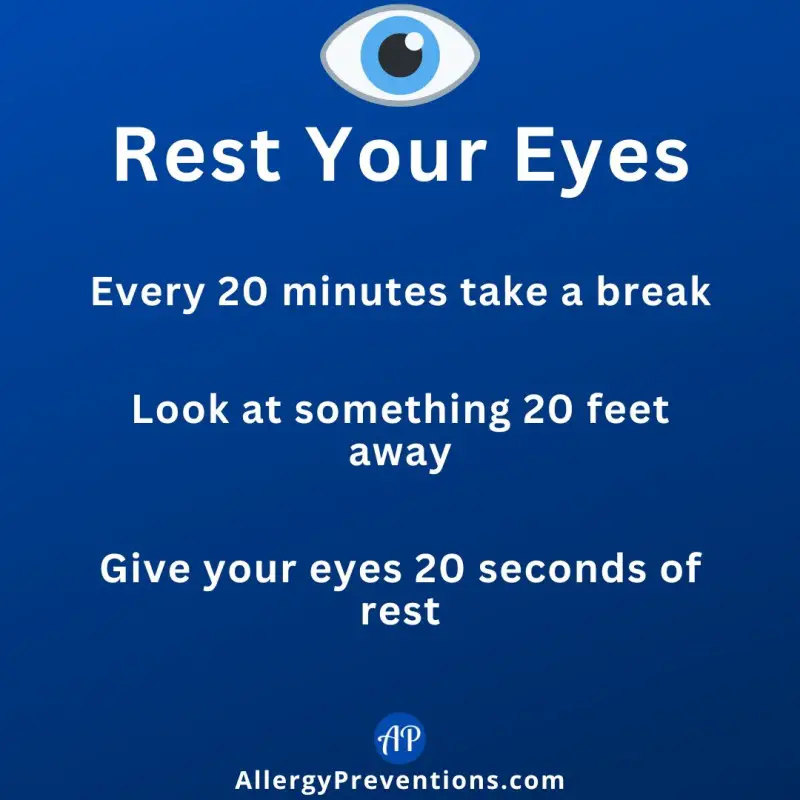
Whether you are looking at screens all day, driving, or reading a juicy novel, you need to rest your eyes. A strained eye can cause you to blink less often and not get your eyes the moisture they need (no eye moisture causes watering eyes). Try and take a break at least every 20 minutes to give your eyes about 20 seconds of rest.
Try Nasal Rinsing
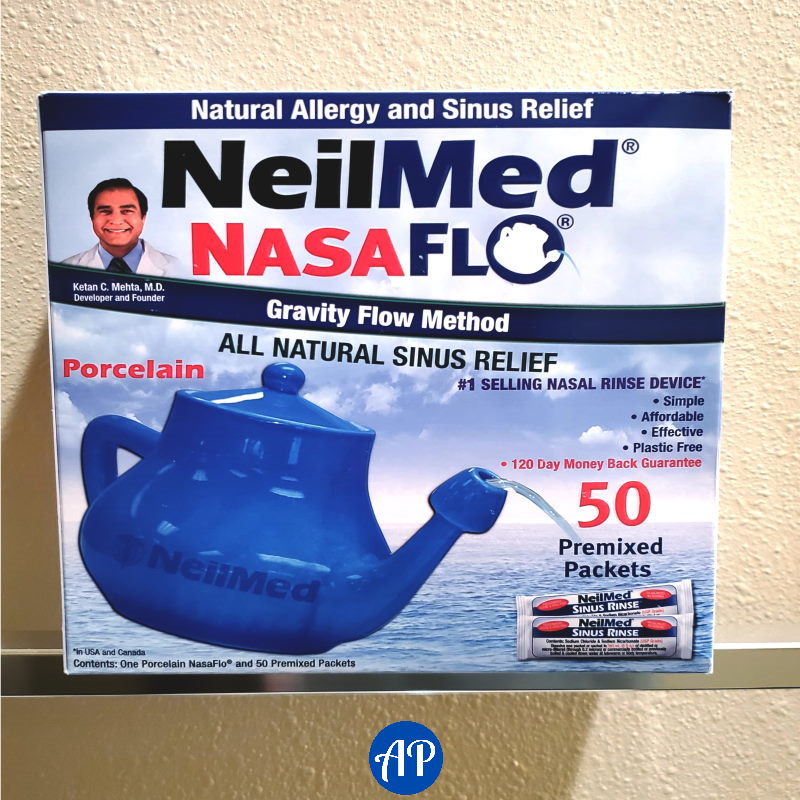
A nasal rinse, like a NeilMed® Neti Pot, works wonders for me to clear out my sinuses from pet dander, dust, pollen, illness, and everything else I am allergic to. This device takes some time to get used to, but try it out and follow the directions!
A nasal rinse gently flushes out your sinuses with no burning (nothing like getting pool water up there) because it’s pH-balanced to your body. I use my nasal rinse any time I am miserable from watery eyes or sinus pressure. This is a natural approach with no medications. Give it a go!
You can pick up a NetiPot like this one from Amazon for a very reasonable price. They also sell a nasal rinse device called a Navage, which is automatic. I haven’t tried this one yet, but apparently, it does some really good sinus irrigation.
Use a HEPA Air Purifier In the Home
If anyone in your home has allergies, the use of a HEPA air purifier is an investment you need to make. I wish we started using a HEPA filter sooner! HEPA filters filter out all the allergens that are airborne from the air. We have seen substantial allergy improvement from using this air filter. Many individuals who suffer from one watery eye at night have seen a big reduction in their symptoms by using an air purifier in their bedroom.
You can see the best-rated air purifiers on Amazon here: Best-Rated HEPA Filters on Amazon.
FAQs
Why does one eye water when I have a cold?
Only one eye waters when you have a cold because of blocked sinuses or nasal passages. When you have a cold, there is an increase in mucus production, this thick mucus can block the drainage from your eyes, causing one eye to water.
Can a watery eye be a sign of covid?
Yes, a watery eye can be a sign of COVID-19. Watery eyes can be caused by many things, and having a cold, flu, or COVID is one of them. When you are sick excess mucus production, nasal congestion, or sinus pressure can all cause your eyes to water.
Why is only my left eye watering?
There are many possible causes, the most common reason is due to irritation. Some examples of eye irritation are dry eyes, allergies, foreign objects, and illness.
Why is it that one eye won’t stop watering?
If you only have one eye that won’t stop watering, and you are not sick, you may have a foreign object in the eye. Foreign object examples are pollen, dust, dirt, an eyelash, hair, or even a bit of makeup.
What is the most common reason for an eye to water?
The most common reason for an eye to water is eye irritation.
Can dry eyes cause your eyes to water?
Yes, dry eyes cause the body to increase tear production. The eye is signaling the brain saying “I am dry” and the body is trying to correct the situation by producing more tears.
Why is just one eye-watering at night?
There are many possible causes for one eye to water at night. The most common reasons are bedtime routine irritation (removing makeup, face washing), dry eyes from a fan, and dust mite allergies.
